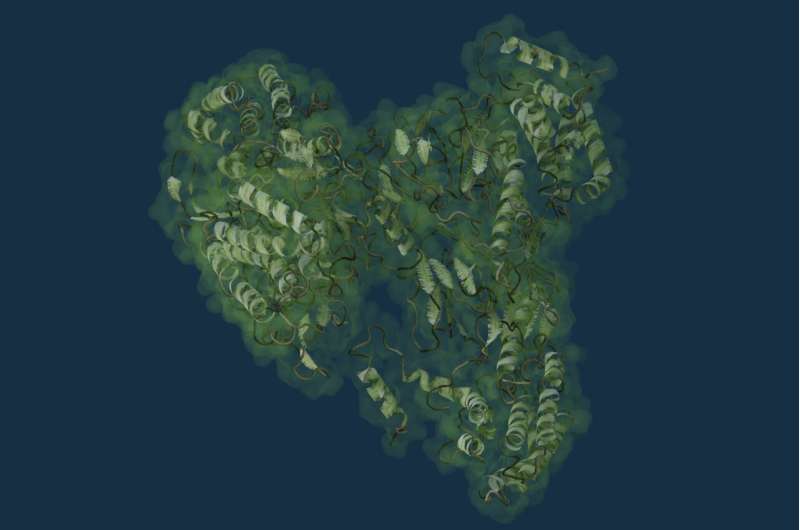This article has been reviewed according to Science X's editorial process and policies. Editors have highlighted the following attributes while ensuring the content's credibility:
fact-checked
peer-reviewed publication
trusted source
proofread
Study discovers ferns can produce crop-saving insecticide

A new study has identified novel insecticidal proteins in ferns. Professor Marilyn Anderson at La Trobe University said the discovery could lead to plant-made protein pest control for crop plants that are essential to global food production.
"The structural analysis demonstrates that even though this protein is produced by plants, it has several features in common with known three-domain Cry proteins used extensively in agriculture for insect control," Professor Anderson said.
"These proteins protect crops from damage by serious lepidopteran (caterpillar) pests."
The discovery of these proteins by Corteva Agriscience holds promise for the development of new tools to combat insect pests that threaten food and fiber production.
The newfound proteins offer an alternative mode of action and a potential solution to the problem of pest resistance to existing insecticidal methods.
Pest control in the major global crops of corn, soybean and cotton use transgenes from Bacillus thuringiensis (Bt) to produce insecticidal proteins for protection against major insect pests. The search for alternative solutions has been motivated by concerns that pests could develop resistance to these proteins.
This study introduces a novel family of insecticidal proteins, designated as IPD113, found in ferns like Pteris species, known as "brake," which are popular as houseplants.
The proteins were very effective in artificial diet-based assays against six of the major lepidopteran (caterpillar) pests of maize and soybeans. Furthermore, maize and soybean plants producing IPD113 proteins were more resistant to insect damage to leaves, stems and ears, compared to control plants.
The crystal structure analysis of one example of these proteins revealed a surprising similarity to the structure of certain Bt insecticidal proteins, even though they are derived from plants (not bacteria). Notably, these fern proteins lack one domain (or part) that is typically present in Bt proteins but maintain effectiveness.
Remarkably, these fern proteins still affected fall armyworm that were resistant to conventional Bt proteins.
The research is published in the journal Proceedings of the National Academy of Sciences.
More information: Marilyn Anderson et al, Novel insecticidal proteins from ferns resemble insecticidal proteins from Bacillus thuringiensis, Proceedings of the National Academy of Sciences (2023). DOI: 10.1073/pnas.2306177120. doi.org/10.1073/pnas.2306177120
Journal information: Proceedings of the National Academy of Sciences
Provided by La Trobe University


















